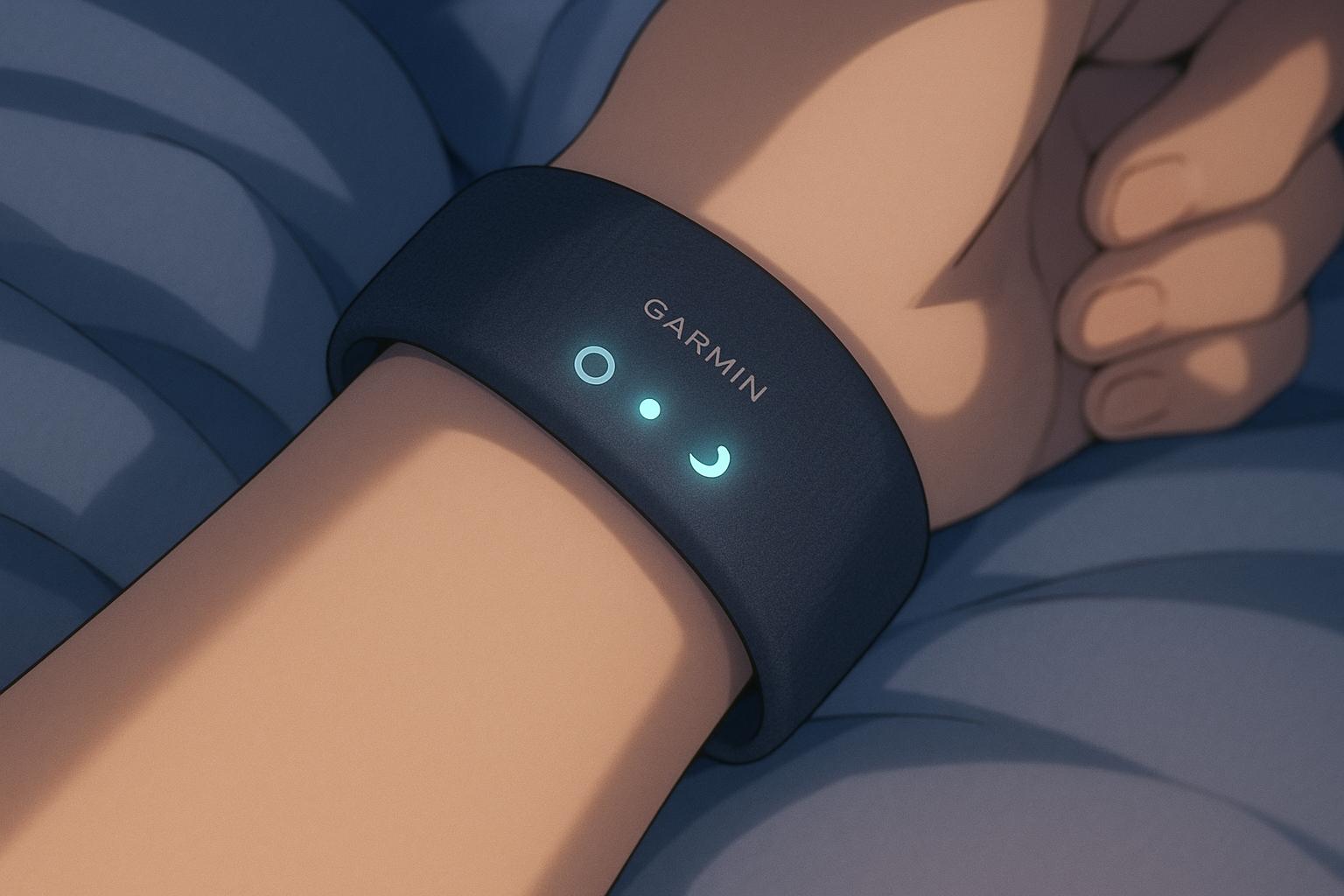Garmin is reportedly on the cusp of releasing a ground-breaking screenless recovery tracker, inspired by the popular Whoop device. According to credible sources, including leak site The5KRunner, this anticipated launch is set for within the next two months. The new device is described as a "sleep band" that focuses on comfort, particularly for overnight use, an area where Garmin's traditional smartwatches have often fallen short due to their bulkier designs.
The forthcoming band incorporates several features synonymous with the Whoop experience. These include vibration alarms, LED indicators for battery life, and intuitive tap gestures for alarm control. Notably, the sleep tracker is designed to monitor various sleep stages by employing heart rate metrics and other health indicators, much like its competitors. This is part of a broader trend in the fitness tracking industry towards devices that prioritise holistic health over specific workout metrics, catering to users who are more focused on overall well-being.
Garmin’s move into the realm of screenless devices follows a significant year for the fitness technology sector, which has seen an emergence of various brands, including Whoop and Coros, offering alternatives devoid of traditional screens. This reflects a burgeoning trend towards discreet health monitoring, as consumers increasingly seek fitness devices that blend seamlessly into their everyday lives. The idea is that by reducing the screen-based distractions associated with fitness trackers, users can immerse themselves more fully in their activities and sleep without the interruption of notifications or data displays.
The competitive landscape is heating up, particularly for brands like Garmin that have established themselves in health and fitness tracking—known for their robust software ecosystems. The introduction of a screenless device aligns with current consumer preferences for simplicity and unobtrusiveness in health-related technology. Analysts suggest that Garmin, which has historically offered feature-rich smartwatches, could position itself as a formidable player in this niche market.
Other companies have taken steps to diversify their offerings; for example, Garmin's Vivoactive range has been touted as a comprehensive health tracker that offers features such as stress monitoring and sleep analysis but retains the traditional smartwatch interface. This indicates a balancing act that Garmin is performing as it navigates the shift towards screenless technology, highlighting that while consumers appreciate advanced features, there is also a growing market for minimalistic approaches.
Ultimately, as Garmin prepares to unveil this screenless sleep band, it signals a noteworthy evolution in how fitness trackers are perceived and utilised. Consumers appear to be prioritising health insights that are less intrusive and more supportive of a holistic lifestyle. The upcoming launch could set a new standard and reshape expectations for how devices can facilitate recovery and wellness, expanding Garmin's influence in the fitness tracking domain.
With recognition of this shift, it seems likely that Garmin's new offering could resonate with a demographic increasingly disillusioned by the distractions of traditional smartwatches, making a strong case for a more focused, intentional approach to health tracking.
Reference Map:
- Paragraph 1 – [1], [2]
- Paragraph 2 – [1], [2], [4]
- Paragraph 3 – [2], [5]
- Paragraph 4 – [6]
- Paragraph 5 – [3], [7]
Source: Noah Wire Services
